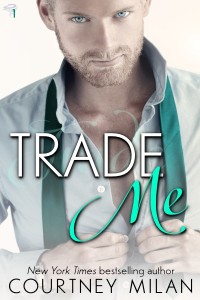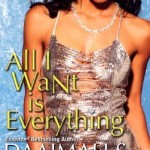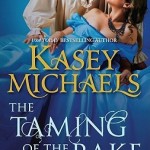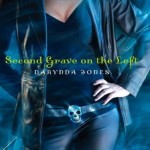 Ok, it’s official – I really do hate NA as a genre. I thought the biggest hurdle for me in Courtney Milan’s Trade Me would be the first person present tense, but the NA setting threw me the most. I didn’t dislike it enough to abandon the trilogy (I think?) but I am definitely not it’s market. If you love NA, chances are good you’ll like Trade Me. Other reviewers are reporting happy tears so let me embrace my inner Grinch and wreak some havoc on Whoville. I loved one aspect of Trade Me (almost) unconditionally – Blake’s father. The rest of Trade Me was a study in patience. Why don’t Tina and Blake know anyone but each other? Courtney Milan’s strength is interpersonal relationships!
Ok, it’s official – I really do hate NA as a genre. I thought the biggest hurdle for me in Courtney Milan’s Trade Me would be the first person present tense, but the NA setting threw me the most. I didn’t dislike it enough to abandon the trilogy (I think?) but I am definitely not it’s market. If you love NA, chances are good you’ll like Trade Me. Other reviewers are reporting happy tears so let me embrace my inner Grinch and wreak some havoc on Whoville. I loved one aspect of Trade Me (almost) unconditionally – Blake’s father. The rest of Trade Me was a study in patience. Why don’t Tina and Blake know anyone but each other? Courtney Milan’s strength is interpersonal relationships!
Let’s start with Tina. She’s lovable. Tina is a first generation Chinese immigrant trying to squeeze through college while holding her family up. She’s smart, she’s hardworking, and she’s not interested in nonsense. She’s stupidly proud, despite coming from a family that strives to help others. I completely understood Tina feeling she had to be the adult in her family. And still. Let me put this as spoiler free as possible – there’s an aspect of Tina’s relationship with her sister* that changes. I was unable to believe Tina could make that change, having been in her shoes myself. I was willing to accept everything but that part, and it fed into my larger dissatisfaction with Tina’s level of interpersonal involvement.
Tina has a roommate, Maria*, who is also her best friend. (She’s the heroine of the next book in the series, Hold Me.) Maria is willing to follow Tina’s lead in all things. Maria pops up for the occasional conversation but is not really present in Tina’s life. She never interacts with Blake, she doesn’t bring third parties in, she seems to exist only when Tina looks at her. This is partially the fault of first person present as a narrative choice, but also part of Trade Me‘s construction. Maria is the only friend in the book. Which brings us to Blake.
Blake is the a young version of the hero of a Harlequin Presents. He’s a billionaire with a big B. The class issues that arise from his relationship with Tina form the basis of the book and yet are also underplayed. Both characters assimilate into their opposite class with an ease that comes from maturity, not sudden exposure. While Tina is vocal where Blake is stoic, both of them got a lifted eyebrow from me in the mild tone of their conflicts. A potentially huge wake up call for his classism is easily sidestepped by… well that would be a major spoiler. You’ll see it when you get there. Half a term at school under the glaring light of his fame yet Blake hasn’t formed a relationship with a single student. I don’t buy the reasons that have sent him to college as being something that would block him having even acquaintances. No one hangs out at his house. No one grabs a ride in his car. There’s no nightly Skype group. Blake hasn’t even joined a running club. You can’t walk down Telegraph Ave without people chatting you up so Blake’s self possession is truly remarkable.
Blake’s best friend is his father, a dominating Ari Gold type. I loved this guy. If Tina had gone for him instead it would have made sense. There’s a weird thing with Blake defining only having friends from work as being an incomplete life. Since Blake goes out of his way not to make interpersonal connections (save Tina and co-workers), I’m not sure where he thinks these other friendships would arise. Blake’s father is a live to work type, his needs appear to be pretty simple. He and Blake are both spinning out of control from the same life event. Having gone through it myself this year I have to agree it makes everything look upside down.
On to the Spoilers –
View Spoiler »
All of that aside, I deeply appreciated Milan’s afterword acknowledging that many college kids are set to fail no matter what their work ethic. I realized before my first college semester ended that withdrawing would be the best choice for my family and my future. While the reasons are as individual as the student, I don’t cheer when I read a happy headline about an at-risk kid getting a great admission package. There’s an incredibly long road between admission and degree. Many students end up with financially crippling loans and no way to earn enough to pay them, much less achieve more than the poverty of their youth. The system is deeply broken, and I loved Tina for refusing to pretend otherwise.
*This post originally appeared at Love In The Margins.



















